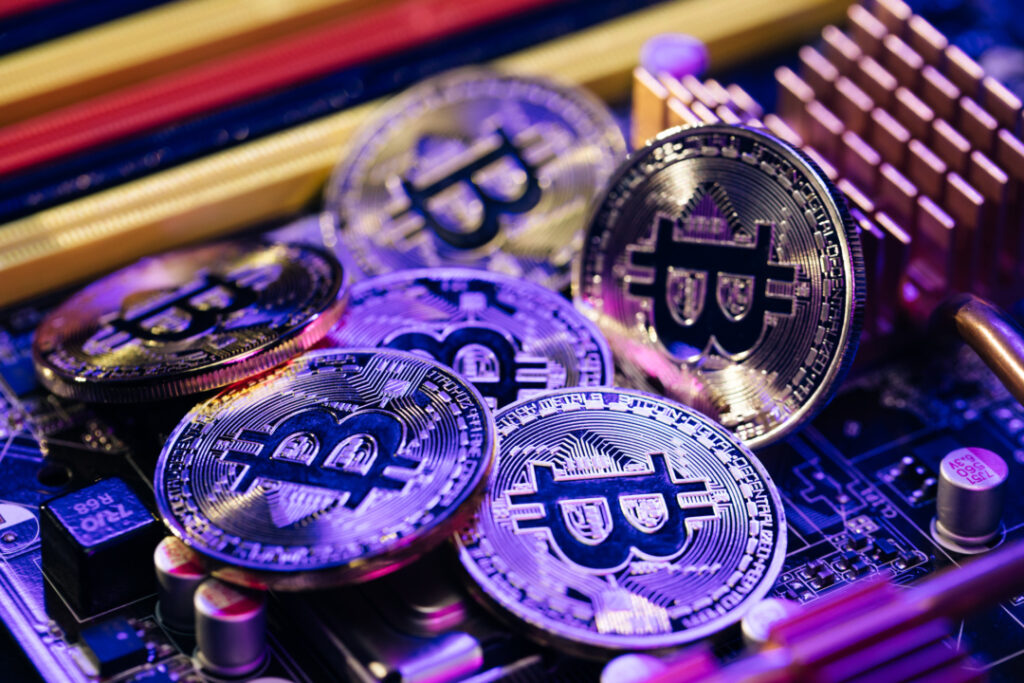In the past decade, the entertainment landscape has undergone a remarkable digital shift, particularly in the online gaming and lottery sectors. Traditional gaming models are being disrupted by cutting-edge technologies that promise transparency, security, and entirely new user experiences. At the forefront of this transformation is blockchain—a decentralized ledger technology that is redefining how players interact with games, manage assets, and trust the systems they engage with.
This article explores how blockchain is reshaping online gaming and lotteries, with a specific focus on how this technology enhances transparency, ownership, and reward systems while safeguarding both operators and players.
The Rise of Blockchain in Digital Entertainment
Blockchain technology first entered public consciousness through cryptocurrencies like Bitcoin and Ethereum, but its utility far exceeds digital currencies. Its core features — immutability, decentralization, and transparency — make blockchain an ideal infrastructure for industries where trust, fairness, and data integrity are crucial. This is precisely why the gaming and lottery sectors have begun adopting blockchain to solve longstanding issues related to fraud, fairness, and trust.
Trust and Transparency at the Core
Online gaming, particularly gambling and lottery platforms, have historically struggled with trust issues. Players often question whether games are truly fair or whether operators manipulate outcomes behind the scenes. Blockchain solves these concerns by offering fully auditable and verifiable systems where:
- Game outcomes are logged on the blockchain and can’t be altered.
- Transactions are transparent and permanently recorded.
- Players can independently verify that results are fair.
This decentralized verification builds confidence among players, increasing long-term engagement and loyalty.
Blockchain’s Impact on Online Gaming Systems
Smart Contracts: Automated and Trustless Gaming
One of the most important blockchain innovations for gaming is smart contracts — self-executing agreements that automatically fulfill the conditions set in code. In online gaming and gambling, smart contracts eliminate the need for intermediaries or human administrators.
For example:
- Prize payouts happen automatically when winning conditions are met.
- Jackpot distributions occur instantly.
- Refunds for invalid or cancelled games are issued seamlessly.
By removing human interference, smart contracts ensure consistent fairness and eliminate disputes, making the gaming experience smoother and more reliable.
Tokenization and Asset Ownership
Blockchain allows digital assets to be tokenized — turning game skins, characters, or collectibles into NFTs (non-fungible tokens) owned by players. This has opened entirely new revenue streams and player engagement models through:
- Play-to-earn ecosystems, where players profit from in-game achievements.
- Secondary markets for trading game items.
- Cross-game interoperability, where items can transfer between different games or platforms.
For online gambling and lottery providers, tokenization offers opportunities for innovative loyalty rewards, transferable tickets, and exclusive access passes that add real-world value to digital participation.
Decentralized Payment Solutions
Payment processing has always been a critical challenge for global gaming platforms. Traditional systems often involve high fees, slow processing times, and regulatory hurdles across borders. Blockchain-based payment solutions offer:
- Instantaneous transactions through cryptocurrencies or stablecoins.
- Reduced fees due to peer-to-peer architecture.
- Easier cross-border participation in global lotteries and gaming platforms.
- Increased financial privacy and security for users.
Blockchain’s Unique Role in Online Lotteries
Among the many gaming formats impacted by blockchain, online lotteries may benefit most dramatically. Lotteries handle high transaction volumes, enormous prize pools, and face intense public scrutiny. Blockchain can address key weaknesses in the conventional lottery system:
Immutable Ticket Records
With blockchain, every lottery ticket purchase can be securely recorded on a public ledger. This provides undeniable proof of purchase, eliminates disputes about lost or unregistered tickets, and prevents duplicate or fraudulent entries.
Transparent Draw Results
Blockchain-based random number generation (RNG) algorithms can record draw results on-chain, allowing anyone to verify that draws were fair and not manipulated by operators.
Streamlined Payouts
Using smart contracts, winnings can be automatically distributed to winners immediately after the draw concludes — avoiding the traditional delays of weeks or months in large jackpot payouts.
Enhanced Global Participation
Blockchain-powered lotteries allow for true cross-border participation without traditional jurisdictional limitations. This opens lottery access to players worldwide while still complying with local regulations.
The Evolving Role of Online Lottery Platforms in a Blockchain-Driven Industry
As blockchain technology continues to influence the future of online lotteries, several platforms are adopting digital innovations to offer greater accessibility, transparency, and convenience to users. In the online lottery space, services like TheLotter have become trusted solutions, allowing users to order official tickets for the world’s biggest lottery draws through a legally compliant courier service, with agents purchasing the tickets on their behalf.
By providing secure digital platforms that facilitate legitimate access to global lottery draws, companies like TheLotter highlight how technological advancements are reshaping the way players engage with international lotteries. While not operating directly on blockchain, these platforms mirror many of blockchain’s key principles—such as transparency, traceability, and secure transactions—while simplifying participation for users worldwide.
Blockchain in Responsible Gaming and Regulatory Compliance
While blockchain enhances fairness and transparency, it also plays a critical role in helping regulators and operators uphold responsible gaming standards.
Player Identity and KYC
Blockchain-based identity solutions allow for secure, decentralized identity management systems where:
- Players control their own personal data.
- KYC (Know Your Customer) verification is automated and privacy-preserving.
- Sensitive documents are not held by operators but can be accessed securely for regulatory audits.
Real-Time Monitoring for Problem Gambling
Smart contracts and blockchain analytics can automatically monitor gameplay patterns, spending habits, and player behavior. If risky patterns emerge — such as excessive spending or compulsive betting — automated interventions like self-exclusion prompts, cooling-off periods, or alerts can be triggered immediately.
Compliance Reporting
Blockchain’s immutable nature simplifies compliance audits for gambling regulators. Auditors can access unchangeable transaction histories and verify that games have operated fairly and within legal parameters.
Challenges and Limitations
While blockchain offers remarkable advantages, its adoption in online gaming and lotteries is not without hurdles:
- Regulatory uncertainty: Laws governing blockchain-based gambling vary significantly across jurisdictions.
- Technical complexity: Blockchain infrastructure can be difficult to integrate into legacy gaming systems.
- User education: Many players still lack understanding of how blockchain works, potentially limiting adoption rates.
- Scalability issues: Public blockchains may struggle with the transaction volumes of large-scale gaming platforms.
As the technology matures and regulatory frameworks adapt, many of these challenges are likely to diminish over time.
Blockchain Gaming: Beyond Lotteries
Online lotteries are just one facet of how blockchain is revolutionizing entertainment. The gaming industry as a whole is witnessing similar trends:
Decentralized Casinos
Platforms like Edgeless and FunFair are experimenting with blockchain-powered casinos that eliminate house edge manipulation and use smart contracts for truly provable fairness.
Esports and Streaming Platforms
Blockchain is being deployed to:
- Verify tournament results.
- Secure digital ownership of media content.
- Manage prize distribution for esports competitions.
Metaverse Integration
Metaverse platforms are increasingly integrating blockchain-based gaming systems, where virtual property ownership, cross-platform avatars, and tokenized reward systems will redefine digital entertainment ecosystems.
Government and Institutional Perspectives
Government agencies worldwide are increasingly studying blockchain’s impact on gaming and gambling regulation. In the United States, regulators such as the Securities and Exchange Commission (SEC) and the Commodity Futures Trading Commission (CFTC) are closely monitoring how blockchain-based gaming and tokenized assets interact with securities laws.
In its October 2024 issue, IEEE Computer Magazine reported that integrating blockchain technology into online gaming ecosystems “can achieve a higher level of security, fairness, and innovation,” signaling strong interest from regulators and industry leaders alike.
The Future of Blockchain-Powered Lotteries
Looking ahead, blockchain has the potential to:
- Enable global lottery networks that pool players across jurisdictions while ensuring legal compliance.
- Create decentralized autonomous lottery organizations (DAOs) where no single entity controls the operation, and participants govern rules through democratic smart contracts.
- Personalize odds and jackpots using player-driven funding pools and real-time smart contract adjustments.
- Boost charitable lotteries with full public transparency into where proceeds are allocated and spent.
Blockchain technology is revolutionizing how online gaming and lotteries operate. From transparent transaction logs and fair play verification to automated prize payouts and responsible gaming monitoring, blockchain offers a powerful solution to many longstanding challenges in digital entertainment.
Platforms like TheLotter serve as a real-world example of how blockchain-inspired systems can improve both player experience and regulatory compliance in the online lottery space. As adoption continues to grow and technological barriers fall, blockchain is poised to become a foundational pillar of the global online gaming and lottery industries — offering players new levels of trust, ownership, and engagement never before possible.

Amanda Dudley is a lecturer and writer with a Ph.D. in History from Stanford University. After earning her doctorate in 2001, she decided to pursue a fulfilling career in the educational sector. So far, she has made giant strides by working as an essay writer for EssayUSA, where she delivers high-quality academic papers to students who need them.






